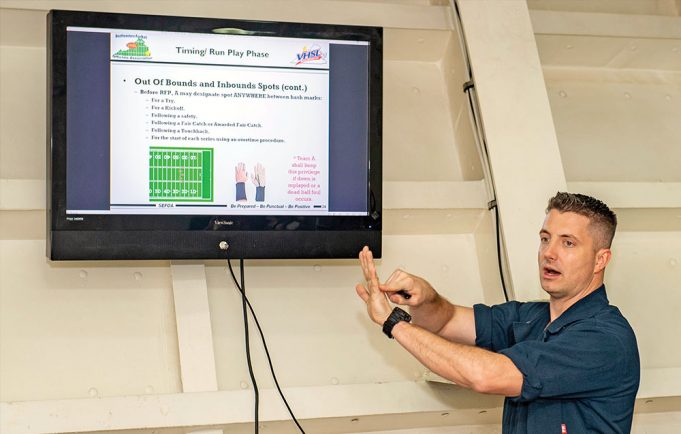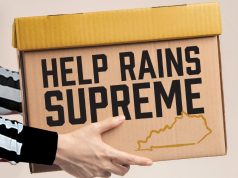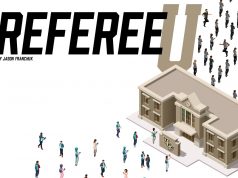Michael Kennedy suddenly found himself in a predicament that was not of his own making.
A 15-year veteran of the U.S. Navy, Kennedy, who holds the rank of commander, had previously been deployed for overseas duty five times.
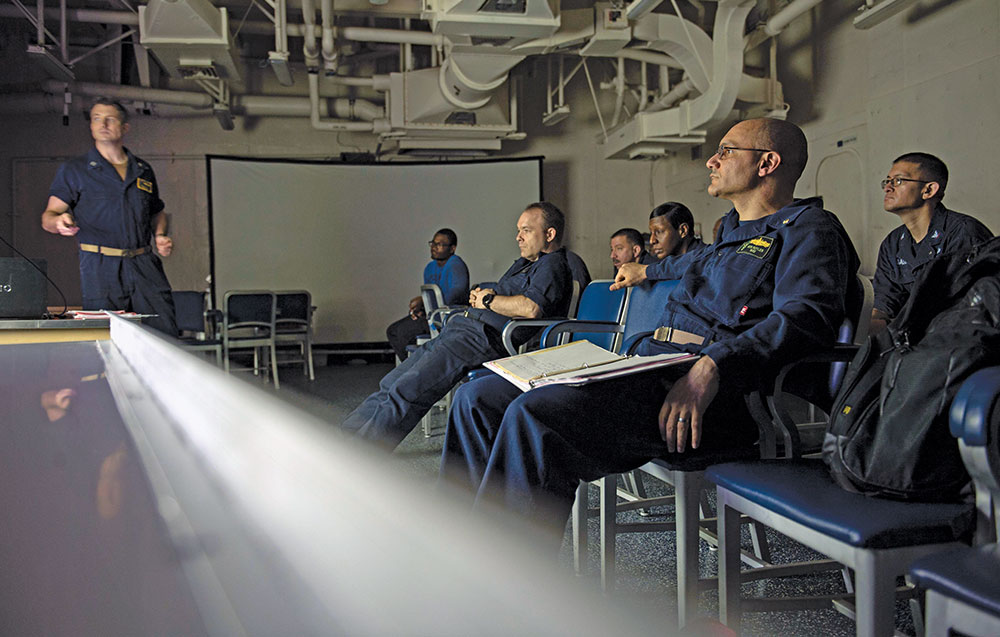
For the most part, the timing of previous deployments coincided nicely with his second passion: football officiating.
Since 2016, Kennedy has been a football official in the Mid-Eastern Athletic Conference. He is currently a back judge, although he has worked all over the field during his high school and college career. He is also the training coordinator for the Southeastern Football Officials Association, the local association that officiates high school football in the Hampton Roads-Tidewater area of Virginia.
But his sixth deployment, one that would come on short notice, wouldn’t time out quite as well for overseeing football officiating training. That training typically started in early May and ran until August, when scrimmages began.
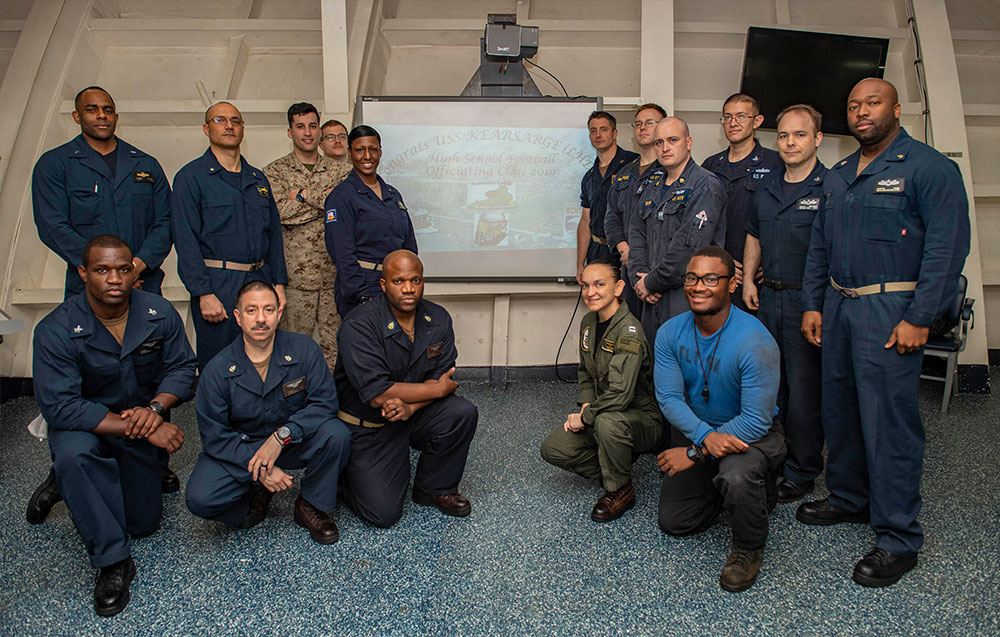
Assigned to the U.S.S. Kearsarge Amphibious Readiness Group, Kennedy found he would serve aboard ship in the Middle East from the end of 2018 until July 2019.
It looked like the deployment would mean no involvement with officiating training until he returned.
Or would it?
To keep his officiating knowledge sharp and to pass the time, Kennedy brought along his football rulebook and game/instructional films.
Aboard the ship, he quickly developed a rapport with several sailors who would be serving with him. “Early on, I talked to a lot of the guys, and I found most of them liked football,” he said. “More than a few said, ‘I’d like to learn how to be an official. It might be something I can do when my service commitment is up.’”
In April 2019, Kennedy decided to test the proverbial waters for interest in officiating classes. Using the football officiating materials he brought along and the Battlefields to Ballfields (B2B) training program, he ran two introductory presentations on football officiating. The B2B program helps get veterans involved with officiating.
Twenty-one sailors and Marines came out for those introductory classes.
The strong initial interest led to an eight-week shipboard training program.
Meetings were held Saturdays from 10 a.m. to noon in the ship’s classroom. Naval ships generally observe Sunday mornings as “holiday routine” that allows for church services, personal time, etc. “But in 5th Fleet, the workweek is Sunday through Thursday as ‘the weekend’ in most Middle Eastern countries is Friday and Saturday,” Kennedy said. “So the ship moved our ‘holiday routine’ to Saturday mornings until noon. This way, most ship activities were already kept to a minimum and prevented other required ship events from conflicting with our classes.”
“We broke the classes up into different phases of the game,” he said. “We started everyone off with game administration, then covered the pre-snap phase, then the run-play phase, pass-play phase, kicking-game phase, and covered all the mechanics and rules that were associated with each phase.”
The last hour of each Saturday morning class involved a review of game film.
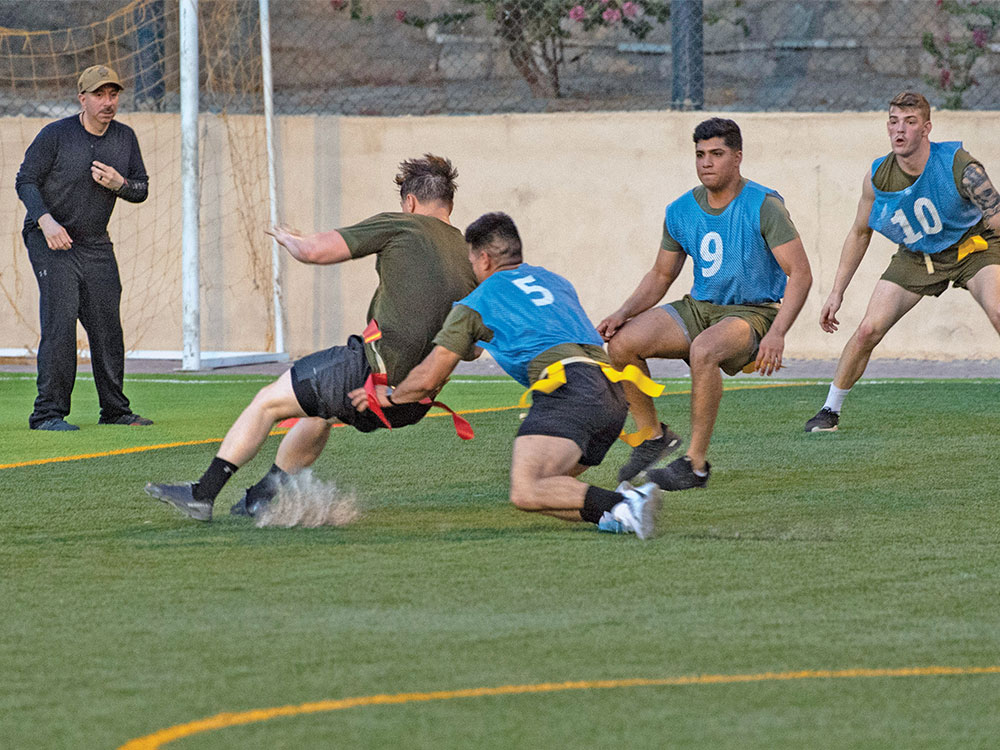
“The biggest thing I tried to get across as they watched the tape was how officials positioned themselves, how they moved,” Kennedy said. “Now, we obviously weren’t able to get out on a field, but seeing the video at least gave them a feel for what goes on out there and how to apply the mechanics we were reviewing in the presentations.”
In between classes, participants would take part in testing on the rules.
“Guys would test each other, emailing questions back and forth from the weekly tests from the material we reviewed the week before,” Kennedy said, noting everyone excelled in the rules.
Fifteen sailors and two Marines finished all eight weeks of the class, which wrapped up in June 2019. When the ship pulled into Jordan, a flag football tournament was set up, giving the new officials an opportunity to put their training into action.
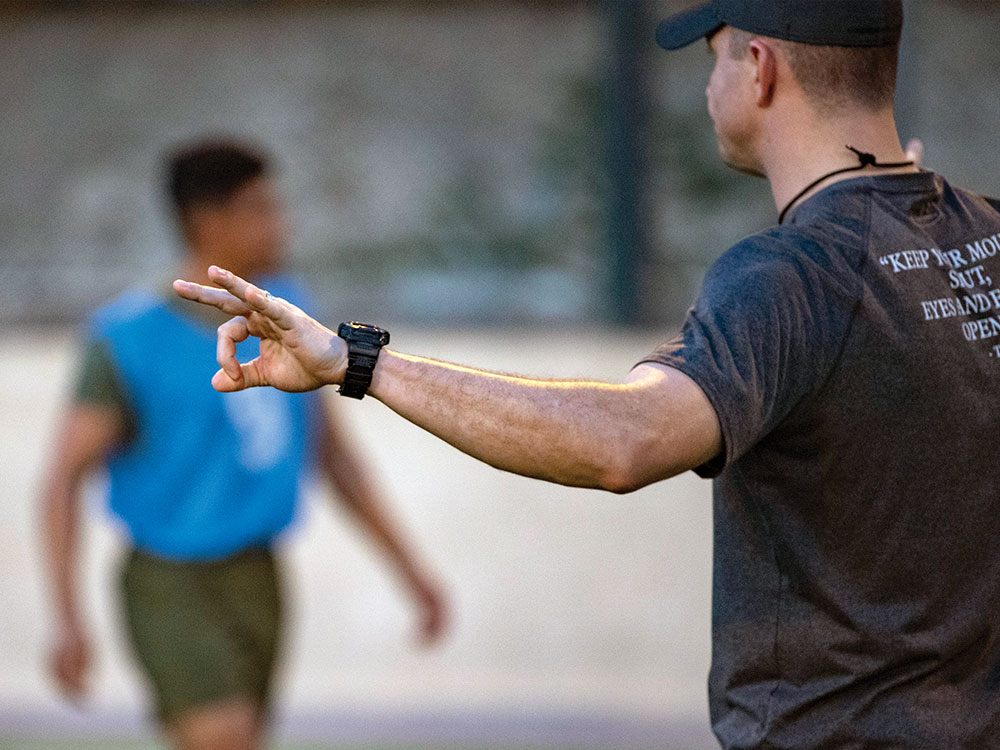
“Our class got to work flag ball,” Kennedy said. “When they started out, some were a bit timid about the rules and having to officiate in front of their peers. These were the same people that they ate, slept and worked with for the last seven months. But by the end of the tournament, they really were managing the game, and the players and coaches really respected the role they held as football officials. It was really great to see them grow on the field as officials.”
A week later, a second flag football tournament was held.
“Everyone had a blast,” Kennedy said. “The tournament was a success.”
Kennedy said he is proud that so many class participants stuck out the entire training and many started officiating high school football upon their return. Eight of the students applied for and received B2B scholarships.
“We are going to see some good (officials) down the road just from this class alone,” Kennedy said.
What's Your Call? Leave a Comment:
Note: This article is archival in nature. Rules, interpretations, mechanics, philosophies and other information may or may not be correct for the current year.
This article is the copyright of ©Referee Enterprises, Inc., and may not be republished in whole or in part online, in print or in any capacity without expressed written permission from Referee. The article is made available for educational use by individuals.

